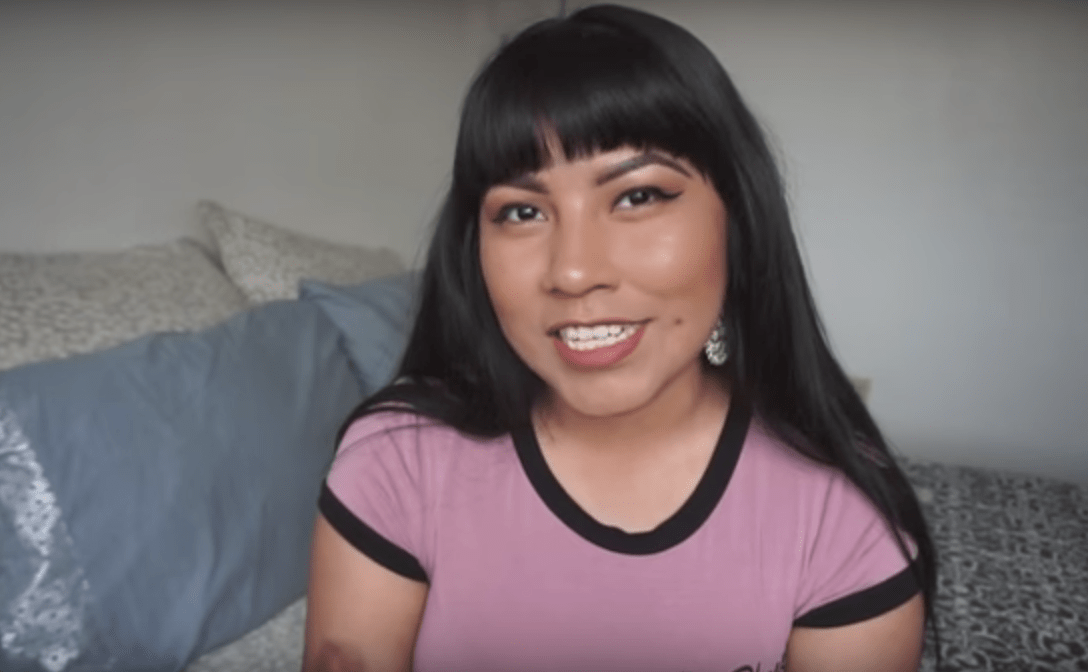For many Native Americans, Thanksgiving is a contentious subject. There are indigenous communities that reject the national American holiday, opting instead to protest with the National Day of Mourning. The practice began in 1970 when American Indians of New England and their allies gathered in Plymouth, Massachusetts (a recognizable landmark in Thanksgiving’s mythology) to remember the genocide of their ancestors and acknowledge their continued oppression. It’s demonstrations like this that have opened dialogues around the erasure of indigenous peoples, racist prejudices, and the complicated history Native nations have with the country at large.
Of course, anyone paying attention to the increased indigenous representation in media and politics could tell you just how problematic Thanksgiving can be. But what’s next? Cue the badass indigenous women behind the businesses, media, and art that challenge tired Native American stereotypes. Today, catch up on some of the inspiring young Natives who are empowering their respective communities with their talents.
Hon’mana Seukteoma, YouTuber and activist
Hailing from the Tohono O’odham Nation in Arizona, 22-year-old Hon’mana Seukteoma’s videos are as hilarious as they are intelligent. Seukteoma started vlogging when she moved off her reservation for the first time to attend college — she soothed her homesickness with O’odham humor skits, Native American Heritage month musings, and documented her adjustment to a new environment. As an indigenous content creator, Seukteoma isn’t afraid to educate her audience. She takes on difficult issues that affect Native millennials nation-wide like race, cultural appropriation, and even suicide. For her own community, Seukteoma has challenged President Trump’s executive orders to build a wall on the U.S.-Mexico, which would run directly through the Tohono O’odham Nation. She’s also an activist involved with Indivisible Tohono, a grassroots organization established by four Tohono women that aims to help tribal members organize around issues like voter registration.
G.M. Davis, Founder of online shop NDNInspired
NDNInspired is a playful take on a term often attributed to culturally appropriated products: “Indian-inspired.” G.M. Davis, a Navajo artist and self-proclaimed “Rez Girl,” started the online boutique by way of Etsy to pay off her student loans. But what started as a practical way to express herself quickly grew into a major business and platform. Davis’s positive quotes, feminist praxis, and reclamation of reservation culture have established NDNInspired as a space of radical self-love for Native users everywhere.
Suzanne Kite, Co-runner of Unheard Records
Oglala Lakota artist and composer Suzanne Kite helms Unheard Records with a unique perspective. Growing up in Southern California, her work as a musician and performer surrounds contemporary Lakota mythologies and storytelling through computational media. For the experimental electronic label, Kite helps elevate the voices of female-identifying, minority, and queer artists through online art galleries, radio, and even workshops. Unheard Records’ latest compilation, Stillness is Resistance, highlights the different forms resistance can take through sound, however quiet or discorded.
Sydney Freeland, Filmmaker
Sydney Freeland is a trans Navajo filmmaker, writer, and Fulbright scholar bringing modern Native identity to the silver screen. When her debut feature Drunktown’s Finest premiered at 2014 Sundance Film Festival, its honest and well-rounded depiction of reservation life was virtually unprecedented. The film follows three Natives as they navigate their traumas and dreams in and around the Gallup, New Mexico Navajo reservation — there’s a trans woman named Felixia, a young father-to-be named Sick Boy, and a woman named Nizhoni who, after being adopted by a white family, searches for connections to her heritage. Pulling from her own experiences growing up on the reservation, Freehand shatters “Indian” tropes like poverty porn or the stoic Noble Savage to share a deeper, more realistic coming-of-age story. She also contributes to the ongoing conversation surrounding trans women of color and LGBTQIA youth, shedding light on pre-colonial concepts like the third and fourth gender Navajo belief.
Tanaya Winder, Poet and founder of Dream Warriors
Tanya Winder is, quite frankly, a Native Renaissance woman. The poet, public speaker, educator, and artist manager grew up on the Southern Ute Indian reservation in Colorado, and also identifies as Duckwater Shoshone and Pyramid Lake Paiute. As a poet, Winder has published countless pieces that examine the role of love in healing from colonial trauma; she recently released her second book of poetry, Why Storms Are Named After People and Bullets Remain Nameless. By highlighting different expressions of love in her work — self love, social love, universal love — Winder re-centers recovery around the affirmative and nurturing instead of focusing on the wound. With workshops throughout indigenous communities (and even an awesome TEdx Talk), she shares her much needed perspective with Native youths trying to navigate the complicated realities they face as marginalized peoples. To top it all off, she also founded Dream Warriors, an indigenous artist management company that works with incredible talents like rapper Frank Waln.
